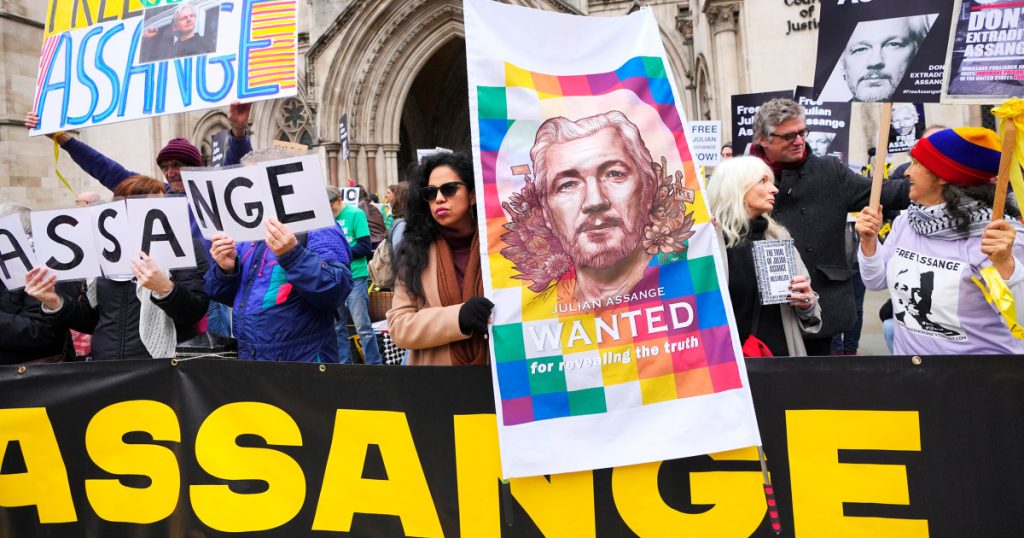A British court may issue a final decision on Monday regarding the possible extradition of WikiLeaks founder Julian Assange to the United States. This decision follows 13 years of legal battles and detentions. Two judges at the High Court in London will rule on whether the court accepts U.S. assurances that Assange would not face the death penalty and would be protected by the right to free speech under the First Amendment. Assange’s legal team anticipates that he could be extradited, released from jail, or face further legal challenges following the decision.
WikiLeaks released numerous classified U.S. military documents, including those related to Washington’s wars in Afghanistan and Iraq. The U.S. government is seeking to put Assange on trial for revealing this information, charging him with offenses under the Espionage Act. Supporters of Assange argue that his actions were not reckless and that his prosecution is an attack on journalism and free speech. Calls for the case to be dropped have come from human rights groups, media bodies, and various political leaders around the world.
Assange has been detained since 2010 when he was first arrested in Britain on a Swedish warrant related to sex crime allegations that were later dropped. Over the years, he has experienced various forms of detention, including being held in Ecuador’s embassy in London for seven years and, more recently, in Belmarsh top security jail. Following the High Court’s ruling, Assange’s legal team may pursue an emergency injunction from the European Court of Human Rights to prevent his extradition. If his extradition is approved, all legal avenues in Britain will be exhausted, and the case may be further appealed in the European Court.
Stella Assange, Julian’s wife and a former member of his legal team, remains committed to fighting for his liberty. She has stated that regardless of the outcome of Monday’s hearing, she will continue to advocate for his freedom. If Assange is released, she plans to follow him to Australia or any other safe location. However, if he is extradited, she is concerned about his mental health and the risk of suicide, as supported by psychiatric evidence presented in court. Stella and their family are prepared to continue their fight for Assange’s freedom should he be extradited to the United States.
The uncertainty surrounding Assange’s case has taken a toll on both him and his family, with Stella expressing the cruelty of living day by day, week by week, and decision by decision. Despite the challenges they have faced, she remains determined to support her husband and seek justice. In the event of his extradition, she pledges to do whatever it takes to advocate for him. The outcome of Monday’s ruling will determine the next steps in Assange’s legal battle, with potential appeals or further hearings in the European Court of Human Rights. Stella emphasizes that their family will continue to fight for Assange until he is free.


